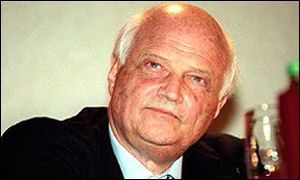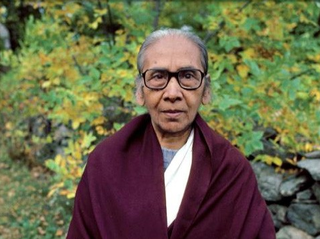A Quote by Stephen Covey
Innocent pleasures in moderation can provide relaxation for the body and mind and can foster family and other relationships. But pleasure, per se, offers no deep, lasting satisfaction or sense of fulfillment. The pleasure-centered person, too soon bored with each succeeding level of "fun," constantly cries for more and more. So the next new pleasure has to be bigger and better, more exciting, with a bigger "high." A person in this state becomes almost entirely narcissistic, interpreting all of life in terms of the pleasure it provides to the self here and now.
Quote Topics
Almost
Becomes
Better
Bigger
Bigger And Better
Body
Bored
Centered
Constantly
Deep
Each
Entirely
Exciting
Family
Foster
Fulfillment
Fun
Here And Now
High
Innocent
Interpreting
Lasting
Level
Life
Mind
Moderation
More
More And More
Narcissistic
New
Next
Now
Offers
Other
Per
Person
Pleasure
Pleasures
Provide
Provides
Relationships
Relaxation
Satisfaction
Self
Sense
Soon
State
Succeeding
Terms
Too
Related Quotes
Lenten practices of giving up pleasures are good reminders that the purpose of life is not pleasure. The purpose of life is to attain to perfect life, all truth and undying ecstatic love - which is the definition of God. In pursuing that goal we find happiness. Pleasure is not the purpose of anything; pleasure is a by-product resulting from doing something that is good. One of the best ways to get happiness and pleasure out of life is to ask ourselves, 'How can I please God?' and, 'Why am I not better?' It is the pleasure-seeker who is bored, for all pleasures diminish with repetition.
I'm not the "not-working" type. I derive pleasure from my work. Work gives me relaxation too. Every moment I am thinking of something new: making a new plan, new ways to work. In the same way that a scientist draws pleasure from long hours in the laboratory, I draw pleasure in governance, in doing new things and bringing people together. That pleasure is sufficient for me.
When you're comfortable and secure, it's not enough. The mind doesn't stop there because it has to continue to focus itself as this body, so it moves to pleasure. And pleasure really is a non-existent thing. When we're experiencing pleasure, we're trying to hold onto it as it leaves, so it really isn't pleasure. Pleasure is pain because we're grasping.
The existence of pleasure is the first mystery. The existence of pain has prompted far more philosophical speculation. Pleasure and pain need to be considered together; they are inseparable. Yet the space filled by each is perhaps different. Pleasure, defined as a sense of gratification, is essential for nature
None has more frequent conversations with a disagreeable self than the man of pleasure; his enthusiasms are but few and transient; his appetites, like angry creditors, are continually making fruitless demands for what he is unable to pay; and the greater his former pleasures, the more strong his regret, the more impatient his expectations. A life of pleasure is, therefore, the most unpleasing life.
At the heart of our desires is eternal happiness without the slightest hint of misery. You could say that we are pleasure seekers; however, seeking pleasure from the objects of our five senses produces fleeting moments of pleasure whereas, pleasure of one's self, a soul, is eternal and ever-increasing pleasure.
Marriage has, for its share, usefulness, justice, honour, and constancy; a stale but more durable pleasure. Love is grounded on pleasure alone, and it is indeed more gratifying to the senses, keener and more acute; a pleasure stirred and kept alive by difficulties. There must be a sting and a smart in it. It ceases to be love if it has no shafts and no fire.
There are three sorts of pleasures which are advantageous, and three which are injurious. Finding pleasure in the discriminating study of ceremonies and music, finding pleasure in discussing the good points in the conduct of others, and finding pleasure in having many wise friends, these are advantageous. But finding pleasure in profligate enjoyments, finding pleasure in idle gadding about, and finding pleasure in feasting, these are injurious.
When we say that pleasure is the end, we do not mean the pleasure of the profligate or that which depends on physical enjoyment--as some think who do not understand our teachings, disagree with them, or give them an evil interpretation--but by pleasure we mean the state wherein the body is free from pain and the mind from anxiety.
It is important to distinguish between sense-pleasure and sense-desire. There is nothing wrong with sense-pleasure. Pleasure and pain are part of our human experience. Sense-desire, on the other hand, is the grasping at pleasure or the avoidance of pain. This is what creates suffering-grasping and avoidance.





































